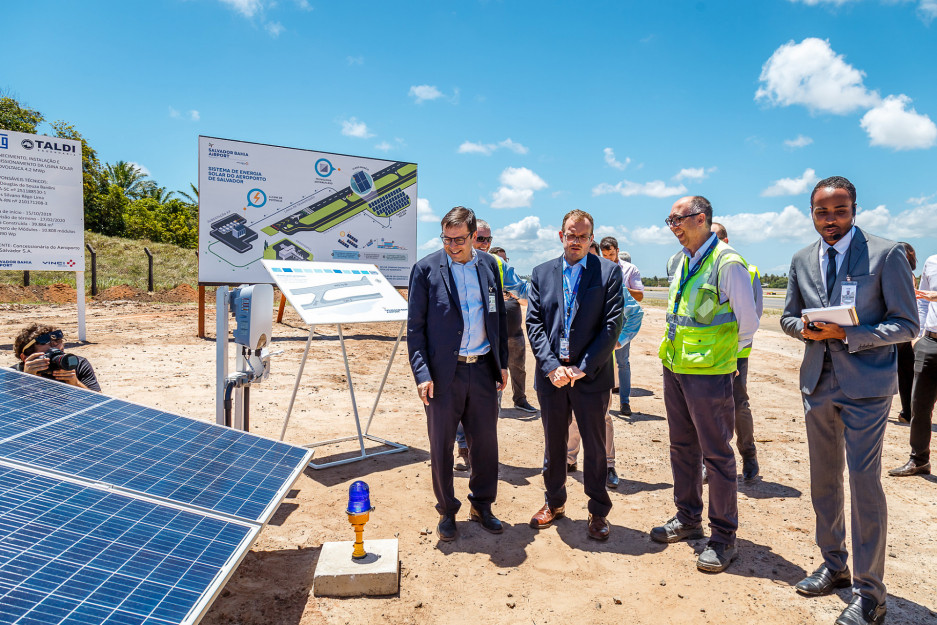
Positive Mobility
eMagEnvironment: time for large-scale action!

In all corners of the world, the decade from 2010 to 2020 was marked by a major uptick in public and environmental awareness. Far more is now expected of major public and private economic actors. We at VINCI Concessions have been fully engaged with these issues for a number of years, and we are convinced that now is the time for large-scale action focused on protecting the environment and reducing the impact of our activities. Local economic and social development can no longer happen if it does not fully take environmental dimensions into account and deliver concrete results.
The question that every economic actor now has to address is perfectly simple: how? Faced with the enormity of the climate challenge and the complexity of the issues, there is certainly no one-size-fits-all solution. But among all the levers available to states, citizens and businesses, the model that VINCI Concessions embodies has an important role to play. The combination of our international footprint with our culture of concessions and public-private partnerships gives us real power to act: this is something we are determined to use to help develop a positive mobility.
Indeed, these challenges have for many years informed and influenced the Group that we are part of. The idea of all-round sustainable performance permeates every aspect of VINCI’s approach to growth. With business lines at the intersection of mobility, urban planning and energy, our Group is particularly well placed to deliver actionable solutions to the problems facing today’s world and to be a force for good in terms of environmental protection.
VINCI Concessions is fully mobilised to address these issues. We’ve set ourselves three targets to meet by 2030: cut our gross emissions (tonnes of CO2 equivalent) by 51% or more compared to 2018; halve the amount of water we use per passenger; aim for zero waste to landfill.
At VINCI Airports, we are committed to achieving zero net emissions by 2050 across our entire network. In every one of our business lines, this commitment is expressed via detailed and carefully calibrated roadmaps, created with all the professional and technical rigour our engineering culture is capable of.
Our airports currently emit 35% less CO2 per passenger than five years ago, an achievement made possible because we have invested, changing our practices and organisations to accelerate ecological and energy transition in our activities: fitting LED lighting and photovoltaic panels; purchasing electric vehicles; building wastewater recycling plants; establishing waste collection and sorting mechanisms, and so on.
Three of our airports are already certified carbon neutral, two of them by the independent Airport Carbon Accreditation programme, a mechanism that all 45 airports in our network are engaged with. A little over a year after taking over the concession at Salvador Bahia airport, we have set it on an ambitious environmental trajectory, earmarking close to 10% of investment spending on delivering environmental progress.
In railways, after just two years in operation, the South Europe Atlantic HSL is already making a positive social and economic impact. Once again, from the outset we positioned sustainability and the environment at the heart of the project. We set up the LISEA Carbon and LISEA Biodiversity foundations, going far beyond our contractual duties in terms of protection of the natural environment and support for regional policies to combat greenhouse gas emissions.
Multiple initiatives are being run right across our network, underpinned by our ability to innovate. One example is the use of innovative synergies developed as part of the SunMind project. This is an in-house start-up incubated by VINCI Concessions that offers us fantastic prospects for developing self-consumption solar power plants around our existing infrastructures.
Over the years, the concession model has demonstrated its ability to navigate periods of transition. The model itself was originally a disruptive response to the problem of how to find new financing and organisational mechanisms for building and operating civil engineering infrastructures. It’s a model that promotes creativity as well as resilience, a model that can turn every change into an opportunity. We at VINCI Concessions believe this model will continue to prove its value. Never has the world had a greater need for a model with the proven capacity to mobilise the investments and technologies on which the ecological transition depends. Our model gives us the tools to deliver this goal.
Nicolas Notebaert, Chief Executive Officer of Concessions at VINCI, President of VINCI Airports and VINCI Autoroutes